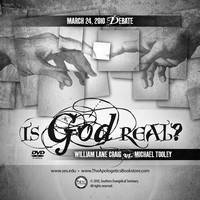Post Author: Bill Pratt
If there is one thing we can all agree on, it is that the physical universe exists. I think we can safely ignore anyone who believes that the universe is just an illusion or that we are in the “matrix.”
But if the universe exists, what explains it? Why does it exist? Any worldview worth considering needs an answer to this question. Let’s look at how Christian theism and atheistic naturalism attempt to answer this question and see which worldview offers a better explanation.
Atheistic naturalism has commonly offered a few responses to this question, all of which I believe are unsatisfactory. First, some naturalists will answer that the question itself is meaningless. They say that it is a nonsense question that has no answer. The universe just is and there is no explanation for it. As an explanation, however, this is no explanation at all. Everyone but the naturalist seems to know what the question means, so we can safely assume the naturalist simply doesn’t want to answer the question because their worldview has no answer.
Second, naturalists have answered that the universe is self-existent, and that it has always existed. The problem with this explanation is that is has been soundly refuted by modern cosmology, by one of the very sciences that naturalists claim to be the arbiters of reality. There is also a philosophical problem with this explanation. Every physical object we observe in the universe is caused to exist by something else, so how can it be that the whole universe can be uncaused if everything in it is caused?
Here is an analogy. Let’s say you see a perfectly smooth, 1-foot diameter, glass globe sitting in the grass. You would conclude, without much thought, that something or someone caused that glass ball to come into existence. Now take that glass ball, blow it up, and make it the size of Jupiter. The Jupiter-sized glass ball still needs a cause, doesn’t it?
Now make the glass ball the size of the observable universe. Wouldn’t you agree that the universe-size glass ball even more obviously needs a cause than the 1-foot ball or the Jupiter-sized ball? Likewise, to say that even though everything smaller than the universe needs a cause, but the universe doesn’t need a cause, is simply implausible.
A third explanation is that our universe is merely one of an infinite sea of universes that exist.
How is this an answer that naturalists can offer? Naturalists claim that only what the physical sciences can observe and describe constitutes reality. But no universe except our own has ever been observed. In addition, even if there were an infinite sea of universes, the question of what caused all those universes needs to be answered. Instead of offering a cause of our one universe, the naturalist has multiplied by infinity the number of effects that need a cause, and thus makes the problem infinitely worse.
What is the answer from Christian theism? Christians answer that the universe exists because a self-existent first cause (God) has brought it into existence and is continuing to hold it in existence. Why is this a better explanation than what atheistic naturalists offer?
It seems obvious that physical objects in the universe need a cause to bring them into existence. A thing cannot cause its own existence. But, in order to avoid an infinite regress of causes, we need a first, uncaused cause.
Here is an analogy from movement. We can say that a stone is moved by a stick, which is moved by a hand, which is moved by an arm, which is moved by a brain, and so forth and so on. But eventually the explanations have to stop at something that is not in need of being moved. We need an unmoved mover, and that is God.
Christians recognize that the universe simply cannot be the cause of itself. The cause must transcend the universe and it must be able to exist on its own, with no need of an outside cause for its own existence. This cause we call God.



